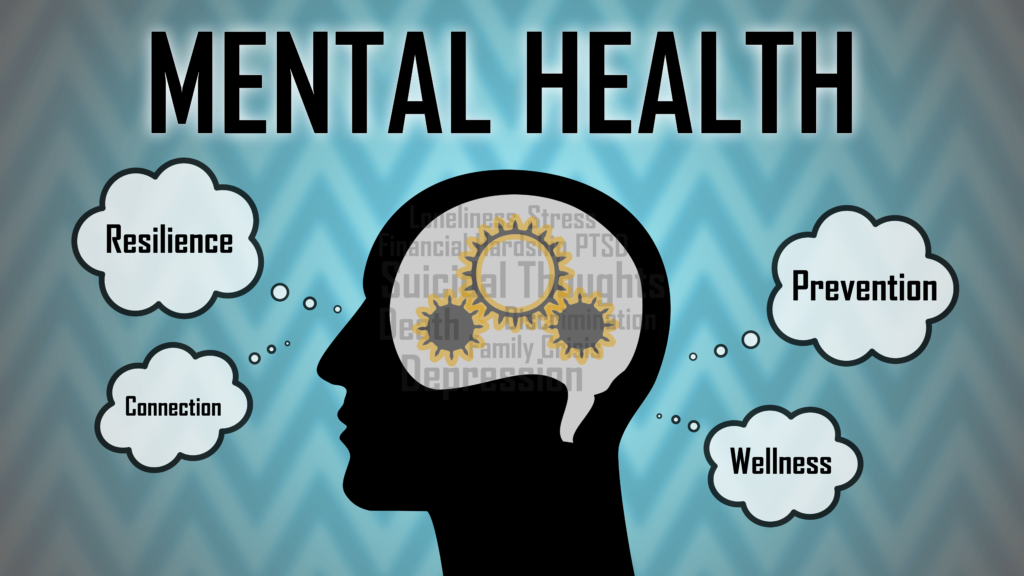In the modern work environment, achieving peak productivity is a common goal, yet many overlook a crucial element in this pursuit: mental health. The intricate relationship between mental well-being and productivity is increasingly recognized as a key factor in enhancing performance and overall effectiveness. Understanding this connection can lead to significant improvements in both personal and professional spheres.
The Mental Health-Productivity Connection
Mental health profoundly impacts productivity. Mental health issues such as anxiety, depression, and chronic stress can impair cognitive functions, reduce motivation, and hinder decision-making abilities. For instance, anxiety can lead to constant worrying, which distracts from tasks and reduces efficiency. Similarly, depression often results in fatigue and lack of concentration, making it challenging to stay productive.
Conversely, a healthy mental state fosters better productivity. When individuals are mentally well, they experience improved focus, greater motivation, and enhanced problem-solving skills. This is because mental health influences how effectively the brain functions. A balanced mental state supports optimal cognitive performance, which is crucial for achieving high productivity levels.
Strategies for Enhancing Mental Health to Boost Productivity
Regular Exercise:
Physical activity is a powerful tool for improving mental health point have a productive life. Exercise releases endorphins, which are natural mood lifters. Regular physical activity also helps reduce symptoms of anxiety and depression, leading to better focus and energy levels. Incorporating exercise into your routine can thus contribute significantly to increased productivity.
Mindfulness and Meditation:
Mindfulness practices, including meditation, can help manage stress and improve concentration. By focusing on the present moment, individuals can reduce the negative impact of stress and anxiety. Mindfulness also enhances emotional regulation, allowing for clearer thinking and better decision-making, which are essential for maintaining productivity.
Adequate Sleep:
Quality sleep is crucial for mental health and productivity. Lack of sleep impairs cognitive functions, including attention and memory, leading to decreased performance. Ensuring sufficient and restful sleep can help maintain mental clarity, improve mood, and boost overall productivity.
Healthy Diet:
Nutrition plays a significant role in mental well-being. Consuming a balanced diet rich in essential nutrients supports brain function and mental health. Foods high in omega-3 fatty acids, vitamins, and minerals contribute to better cognitive performance and mood stability, which are vital for maintaining high productivity levels.
Effective Stress Management:
Learning to manage stress effectively is crucial for maintaining mental health and productivity. Techniques such as deep breathing exercises, time management strategies, and seeking social support can help alleviate stress. Developing a proactive approach to stress can prevent burnout and ensure sustained productivity.
Work-Life Balance:
Achieving a balance between work and personal life is essential for mental health. Overworking can lead to burnout and reduced efficiency. Setting boundaries, taking breaks, and engaging in leisure activities can help maintain mental well-being and enhance productivity in the long run.
Seek Professional Help:
If mental health issues are impacting productivity, seeking professional help is crucial. Therapists and counselors can provide valuable support and strategies for managing mental health challenges. Addressing mental health concerns with professional assistance can lead to improved performance and overall quality of life.
Creating a Productive Environment
Creating a supportive environment that promotes mental health can further enhance productivity. Workplaces that prioritize mental well-being often see increased employee satisfaction and performance. Implementing practices such as flexible work hours, providing mental health resources, and fostering a positive work culture can contribute to a more productive workforce.
Employers can also encourage open conversations about mental health, reducing stigma and creating a supportive atmosphere. When individuals feel valued and understood, they are more likely to engage fully in their work and perform at their best.
The Long-Term Benefits of Prioritizing Mental Health
Investing in mental health not only boosts immediate productivity but also offers long-term benefits. Maintaining mental well-being leads to sustained cognitive function, reduced risk of burnout, and improved overall job satisfaction. In turn, this creates a more resilient and adaptable workforce, capable of handling challenges and achieving high performance over time.
In conclusion,
The role of mental health in achieving peak productivity is both profound and multifaceted. By prioritizing mental well-being through exercise, mindfulness, adequate sleep, healthy eating, stress management, work-life balance, and professional support, individuals can enhance their productivity and overall quality of life. Creating environments that support mental health further amplifies these benefits, leading to sustained success and fulfillment. Ultimately, recognizing and addressing the connection between mental health and productivity is key to unlocking one’s full potential and achieving peak performance.



